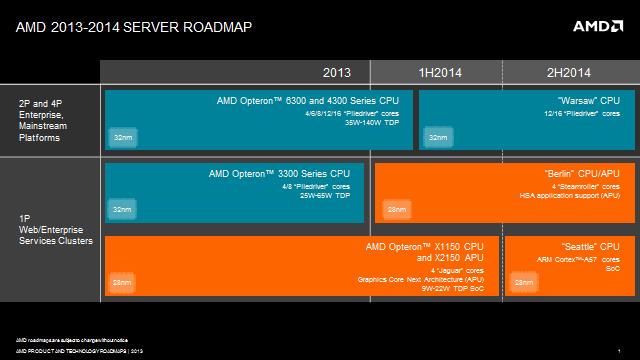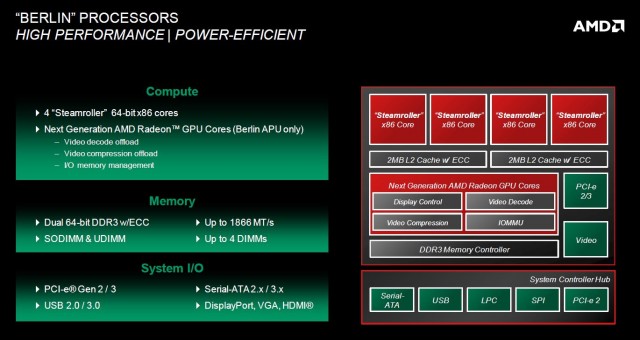
Late last year, AMD announced that it would no longer rely exclusively on the x86 architecture for its server processors, with its first ARM-based Opteron chips to begin shipping in 2014. AMD appears to be keeping to that schedule—today it announced the first major details for the new ARM-based chips, which begin sampling in the first quarter of 2014 and shipping later that year.
The new SoC, codenamed "Seattle," is based on ARM's upcoming Cortex-A57 architecture, meaning that it will be fully 64-bit, just like AMD's x86 processors. Seattle will support up to 128GB of RAM, integrated ten gigabit Ethernet, and AMD's "Freedom Fabric" tech, which groups low-power CPU cores together into clusters to feed them with data from the network more efficiently. AMD expects the eight- and 16-core SoCs to run at speeds of at least 2GHz.
AMD says that the ARM SoCs will offer two to four times the performance of the just-announced x86-based low-power Opteron CPUs, though this performance figure would appear to come from the boosted core count (eight or 16 compared to four). Given that they have similar clock speeds, then, it would appear that AMD is expecting the Cortex-A57 architecture to perform as well as its "Jaguar" CPU architecture while using less power overall.

The company has also announced a pair of other, more traditional server processors. "Berlin," available in the first half of 2014, is a quad-core chip that will be offered as both an APU (read: with an integrated graphics processor) or as a standalone CPU. It will be based on the company's "Steamroller" architecture (the second major revision of Bulldozer, after Piledriver), and will offer the same support for heterogenous Uniform Memory Access (HSA) being offered in some of AMD's other CPUs. "Warsaw," available in the first quarter of 2014, is a 12- and 16-core Piledriver-based CPU (no integrated GPU option here) designed for servers with two or four CPU sockets. AMD claims it will "provide significantly improved performance-per-watt" compared to current Opteron 6300 series CPUs.
reader comments
44